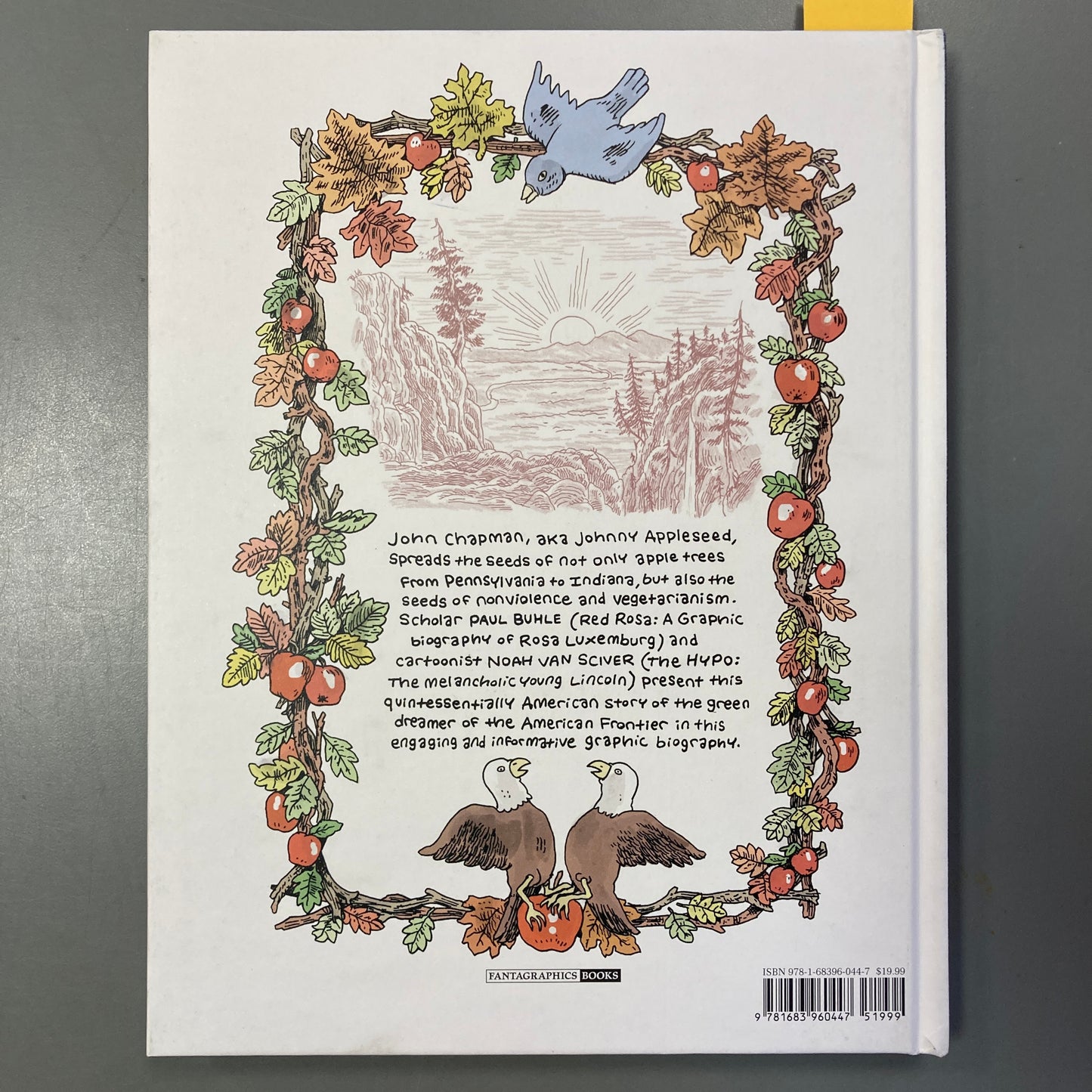Johnny Appleseed
Johnny Appleseed
Couldn't load pickup availability
By Paul Buhle & Noah Van Sciver. Published by Fantagraphics.
Hardcover, 112 pages, B&W, 2017
This is a graphic biography of the green dreamer of the American Frontier, the legendary John Chapman, from Brown University scholar Paul Buhle (Red Rosa) and award-winning cartoonist Noah Van Sciver (The Hypo: The Melancholic Young Lincoln).
John Chapman, aka Johnny Appleseed, made himself the stuff of legend by spreading the seeds of apple trees from Wisconsin to Indiana. Along with that, he offered the seeds of nonviolence and vegetarianism, good relationships with Native Americans, and peace among the settlers. He was one of the New World's earliest followers of the Swedish theologian Emanuel Swedenborg. The story of John Chapman operates as a counter-narrative to the glorification of violence, conquest, and prevailing notions of how the West was Won. It differentiates between the history and the half-myths of Johnny Appleseed's life and work: His apples, for instance, were prized for many reasons, but none more so than for the making of hard cider. He was also a real estate speculator of sorts, purchasing potentially fertile but unproven acres and then planting saplings before flipping the land. Yet, he had less interest in financial gain—and yes, this is an accurate part of the mythology—than in spreading visions of peace and love. Johnny Appleseed brings this quintessentially American story to life in comics form. Black & white illustrations throughout.
"The 'St. Francis of the Frontier' comes alive in this winsome history of utopian agitation in antebellum America." — Boston Globe
"Johnny Appleseed charts the life of John Chapman, a man who planted a ridiculous number of apples in the Midwest while eschewing a philosophy of peace and copious hard cider. Appleseed tends to persist as a character of folklore, but his biography is filled with moments just as massive and subversively zen." — Paste
"Johnny Appleseed will appeal to readers interested in an alternative perspective on this period of American history." — Publishers Weekly
"The production, typical of Fantagraphics, is gorgeous. ... Inspection reveals 116 ravishing pages that tell the true story of the man who became famous two centuries ago for spreading the seeds of apple trees from Pennsylvania to Indiana." — ArtsJournal
"In 112 packed, illustrated pages, Buhle and Van Sciver cover a lot that you probably didn't learn in U.S. history class. Like the cider made from Johnny's apples, it goes down well." — The Rag





